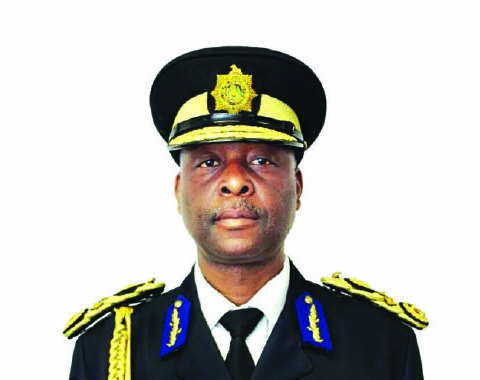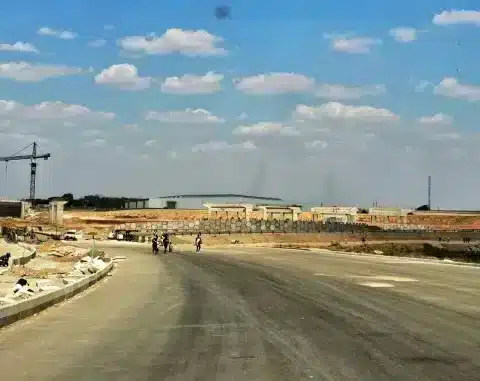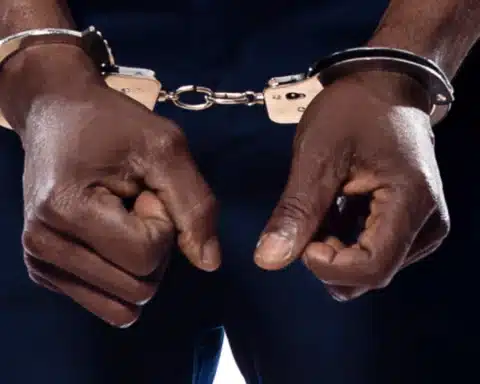The church and the media are perhaps the most influential institutions today. That is why their activities have come under close scrutiny by a concerned public. As government watchdogs, the two institutions should enjoy the integrity of Caesar’s wife.
In the last couple of days, some of the most vocal social media bloggers and influencers have painted leading political figures and some church leaders as ungodly after the recent violence and looting that left people dead and many businesses ruined in Zimbabwe and so contributed in polarising the country.

August 1st killings still fresh in our minds
The recent violence in Zimbabwe comes hot-off-the-heels of the Motlanthe-led inquiry into post-election violence which failed to point an accusing finger at who was at fault for the August 1st killings. With that still fresh in our minds more people have been killed and injured by the military under the Mnangagwa government and the question now is why is the church silent about all these abuses?
The argument is that the church should be at the forefront of castigating those perpetrating these acts of abuse and violence.
Indeed, the church must be seen to be addressing the issues raised, including tribalism, lack of inclusivity in public appointments, insecurity and corruption in Zimbabwe.
I know much has been written on the internet/social media platforms but this piece by my friend, Lennon Manyengawana, (https://www.onwardchristianmagazine.com/where-is-the-church-in-all-this-does-the-church-understand-its-role-in-zimbabwean-politics/) is one of those must reads.
Pointing out corruption is not an illegality
The Government and The Church in Zimbabwe seem to speak the same language and are quick to challenge the citizens to channel their grievances through “the right channels” (you would think complaining or pointing out corruption is an illegality). The citizens have been drowned by the call for dialogue from both the church and government and the empty postures of a willingness to listen by the Mnangagwa Government. But it is foolish to forget that in Parliament, tyranny of numbers would not allow for any meaningful debate. The odds are against anyone hoping to talk Zanu PF into anything that makes them release the tight grip they have on power.
We have also seen the pulpit being used to attack political opponents and prayers held for those currently in office. Most of whom have been perpetrators of the blood-letting which Zimbabwe has witnessed since independence.
Suggested ways to engage
Here are 5 ways in which I suggest Christians and churches must engage in order to try and resolve the deepening crisis in Zimbabwe.
1. Don’t ignore.
Silence, in itself, is a statement.
In some cases, it may be a powerful expression of wisdom, but this is not that case. To say nothing, to pray nothing…is to communicate that it’s not a big deal. To say nothing, to pray nothing…is to tell your congregants – especially your congregants who have been brutalised, at the hands of the police and army “Come on we are not political. You’re taking this too seriously. Suck it up. God is in control. Let’s just worship Jesus. It’s all about Jesus.”
2. Name it.
Now, let me be clear. I don’t know all the details – not just because I am in the diaspora and almost oblivious to the intrinsic realities that took place on the ground in the past weeks but because the full details have yet to be shared, shown, distributed – let alone the integrity of those details.
But when it’s all said and done. When all the finger pointing and screaming subsides; When the focus on the looting and violence gets rightly placed back at the crux of the matter, what we have left is:
the deaths of unarmed civilians, long suffering citizens of Zimbabwe. Let that sink in.
Because of the sins of corruption, mismanagement of national resources, and mis-governance and the abhorrent history of brutality in this country, we still fight the myth of the suspicious, scary unarmed citizens with a regime change agenda inspired by our erstwhile colonisers.
3. Explain that this is a justice issue.
Because unarmed Zimbabweans citizens are dead.
Because unarmed civilians are brutalised and injured by the police and the army.
Because only the corrupt politicians are wealthy.
Martin Luther King, Jr.’s words are apropos – even still today – and especially to the Church:
Men often hate each other because they fear each other; they fear each other because they do not know each other; they do not know each other because they cannot communicate; they cannot communicate because they are separated.
Religion deals with both earth and heaven, both time and eternity. Religion operates not only on the vertical plane but also on the horizontal. It seeks not only to integrate men with God but to integrate men with men and each man with himself… Any religion that professes to be concerned with the souls of men and is not concerned with the slums that damn them, the economic conditions that strangle them and the social conditions that cripple them is a dry-as-dust religion.
4. Explain that this is a body of Christ issue.
For some– especially those who are benefiting from corruption in Zimbabwe, this is simply news. But for the long-suffering majority – especially in the unemployed youths whose futures are blighted by corruption – this is something entirely different.
In the brutalised citizens, they see a familiar story.
All too common of a story.
An ongoing common story that seems to have no end.
Some may call it a nightmare.
In events that took place mid-January, they see the 1st of August 2018 violence. In the innocently killed victims, they see a son, a husband, a father, a nephew, or perhaps…even themselves.
So, I ask again, if our Zimbabwean sisters and brothers in Christ are angry, grieving, hurting, and mourning…can’t we at least listen, seek to understand and mourn with them?
Are we the body of Christ or not?
We lament…

5. Explain the hope and invitation of the Gospel…
This is our unique contribution as followers of Christ. It’s not our contribution because in itself, it is the hope of the Gospel.
There is neither Jew nor Gentile, neither slave nor free, nor is there male and female, for you are all one in Christ Jesus. – Galatians 3:28
God has a call and invitation to the body of Christ and we can’t ignore this. If the events that have taken place since the so-called ‘new dispensation have not convicted you to take this invitation and call truly to heart, I urge you to pour a bucket of cold ice over yourself and WAKE UP.
I can write so much more but let me leave you with these thoughts:
This isn’t a one time call to stand against corruption and bad governance.
It shouldn’t just be a one time message to get the Christians and the Church to engage with the Politics of Zimbabwe.
This is about the church – the body of Christ, the bride of Christ – to truly take these words to heart and commit themselves to the long and laborious journey of living into the fullness of the image of God.
It’s about asking hard questions and committing to harder steps.
It’s about justice, peace, and human flourishing.
In short, it’s about the Kingdom of God and I can’t think of a more compelling reason.
And lastly, pray.
Reconciliation is painful because in essence, we have to confess to our collective brokenness.
And this is why … reconciliation … requires prayer. It’s a long journey and commitment but to do and engage without prayer is to convince ourselves that we can do this on our own.
Truth is we can’t do this on our own.
Pray for all involved. Pray for families of those killed in political violence. Pray for the police officers and the soldiers used to brutalise citizens. Pray for all law enforcement. Pray for the churches in Zimbabwe. Pray for all of us. We can’t do it alone.
Lord, in your mercy bless the Zimbabwean individual as you have blessed the land, we call Zimbabwe.








